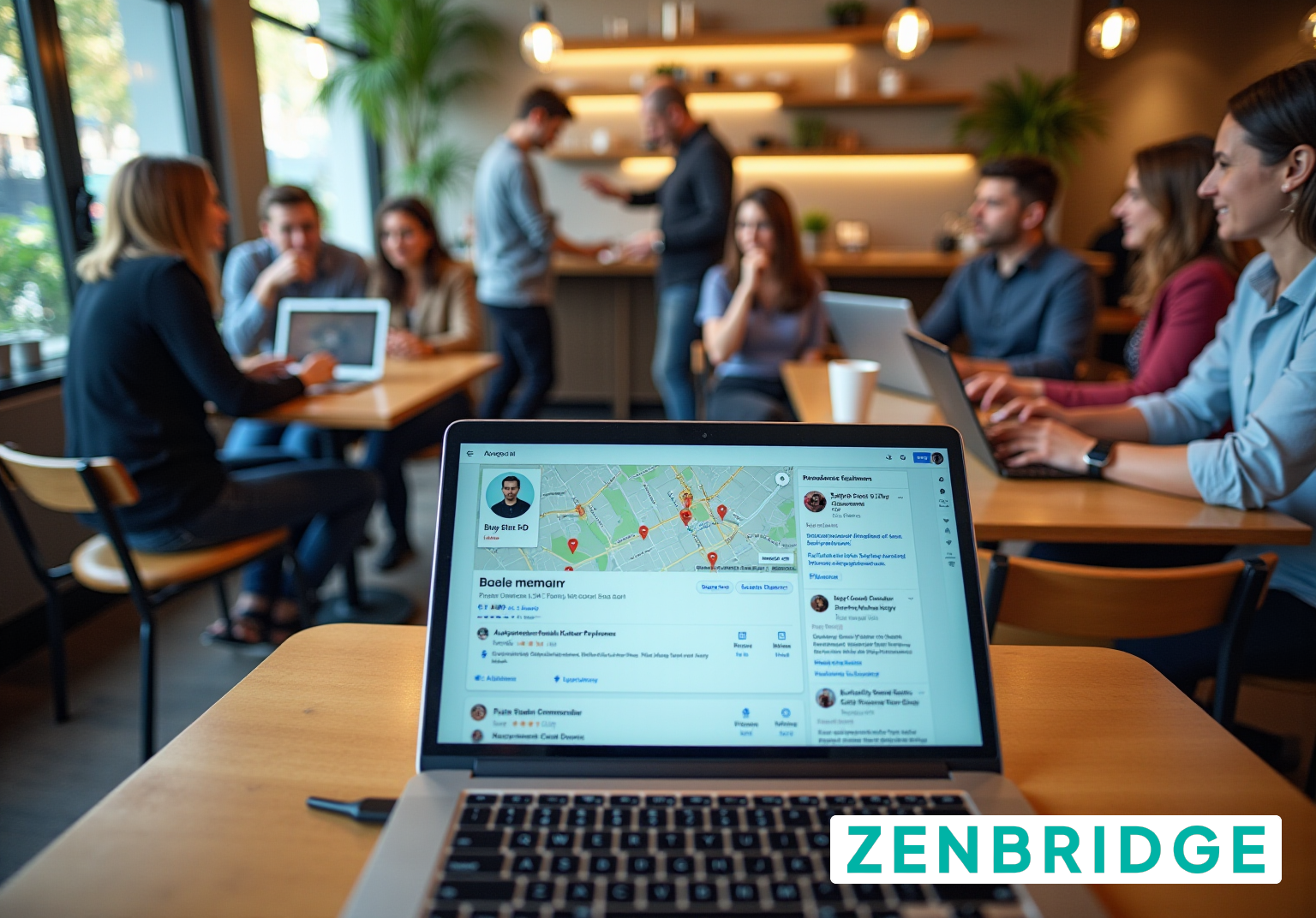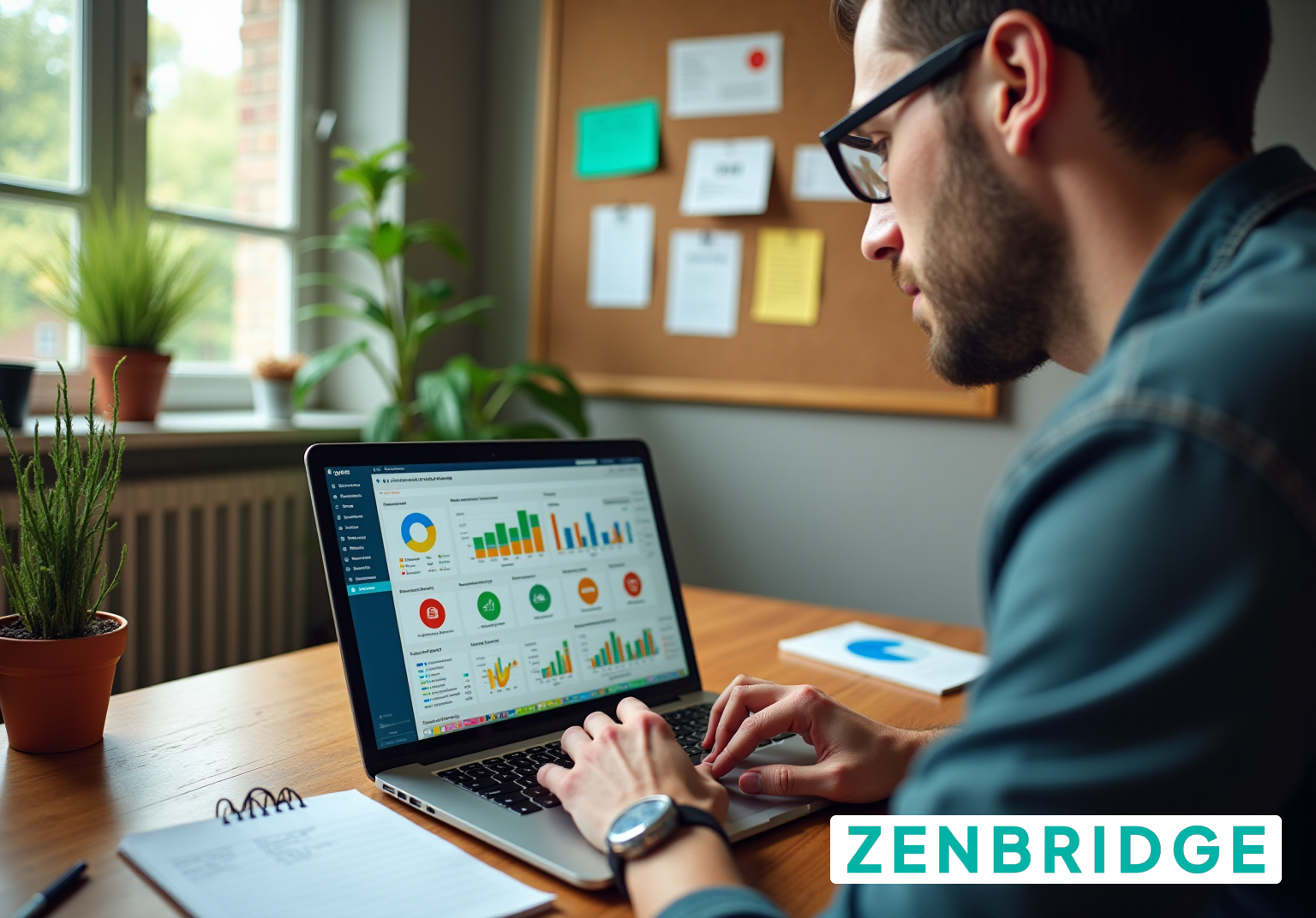
Harness Artificial Intelligence for SEO: Best Practices for Small Businesses

Overview
Harnessing artificial intelligence (AI) for SEO can significantly enhance small businesses' online visibility and engagement. By optimising keyword selection and improving local search outcomes, AI tools prove to be invaluable in the digital marketing landscape. Notably, 67% of small enterprises are already utilising AI for SEO, which leads to better performance metrics and increased customer conversion rates. This statistic underscores the effectiveness of AI tools in driving successful digital marketing strategies.
Introduction
Artificial intelligence is transforming how small businesses approach search engine optimization (SEO), presenting unmatched opportunities for growth and visibility in a competitive digital landscape. By analysing vast amounts of data, AI technologies uncover insights and trends that small enterprises can leverage to enhance their SEO strategies, improve local search rankings, and engage more effectively with their target audiences.
However, as businesses navigate this AI-driven landscape, they encounter the challenge of integrating these advanced tools while preserving the human touch that is vital for quality and relevance. How can small businesses strike the right balance between harnessing AI's capabilities and ensuring their SEO efforts resonate authentically with customers?
Understand AI's Impact on SEO for Small Businesses
Artificial intelligence for SEO is fundamentally transforming the landscape for small enterprises in 2025. By processing extensive datasets, AI uncovers trends and patterns that may elude human marketers. For instance, AI algorithms enhance keyword selection according to user intent, allowing companies to effectively reach their desired audience.
Moreover, AI greatly improves local SEO by examining geographic data, which assists companies in attaining better positions in local search outcomes. This capability is crucial, as AI search visitors convert at rates 23 times better than traditional organic search visitors. This underscores the importance of optimising for AI-driven search features.
The successful integration of AI tools has led to notable improvements in Google Business Profile rankings for various enterprises, resulting in enhanced local visibility and increased customer engagement. In fact, 67% of small enterprises are now employing artificial intelligence for SEO and material marketing, reflecting a broader trend where 80% of firms are integrating artificial intelligence for SEO into their operations.
Expert opinions suggest that the best approach combines AI's efficiency with human expertise, particularly for complex SEO challenges. As AI progresses, small enterprises must adjust their strategies to stay competitive in an increasingly digital marketplace. This ensures they leverage the full potential of AI to drive growth and visibility.
Implement AI Tools for Effective SEO Strategies
To effectively utilise AI in SEO, small enterprises should embrace resources such as AI-driven keyword research platforms, content optimization software, and analytics solutions. For instance, SEMrush and Ahrefs leverage AI to deliver valuable insights into keyword performance and competitive analysis. This enables businesses to make informed decisions. HubSpot reported a 300% enhancement in link-building efficiency when utilising AI resources, demonstrating their effectiveness.
Furthermore, AI content generation platforms like Jasper can assist in producing SEO-friendly material that connects with target audiences, greatly enhancing engagement. Applying these resources not only simplifies processes but also improves the overall quality of SEO strategies. Significantly, 58% of marketers are already utilising artificial intelligence for SEO in their keyword research, which highlights the significance of these resources.
Businesses are encouraged to begin by incorporating one or two AI solutions into their existing workflows. Gradually broadening their application as they gain confidence in these technologies allows for a smoother transition and maximises the benefits of AI in driving effective SEO outcomes. However, it is essential to be aware of common pitfalls, such as over-reliance on automation without human oversight, to ensure a successful implementation.
Align AI Content Creation with SEO Best Practices
To effectively utilise artificial intelligence for SEO in materiel creation, small enterprises must ensure their output aligns with SEO best practises. This involves optimising for relevant keywords, maintaining a natural flow, and ensuring readability. AI tools can facilitate the generation of topic ideas and initial drafts; however, human oversight is essential to uphold quality standards and prevent misinformation.
Businesses should prioritise generating valuable, informative materiel that addresses customer pain points and queries. Incorporating local keywords and phrases significantly enhances visibility in local search results. For example, a plumbing service could utilise AI to generate blog posts discussing common plumbing issues specific to their area, thereby effectively targeting local customers. This approach, utilising artificial intelligence for SEO, not only improves search rankings but also fosters engagement with the community, ultimately driving more qualified leads.
Significantly, 86.5% of materiel in the top 20 is at least partially AI-generated, indicating the increasing role of artificial intelligence for SEO in effective strategies. Moreover, 68% of marketers have observed a positive increase in ROI after utilising AI, highlighting the financial advantages of incorporating AI into materiel creation.
Monitor and Optimize AI-Driven SEO Performance
To ensure the success of AI-driven SEO strategies, small businesses must consistently monitor their performance using analytics tools. Metrics such as organic traffic, bounce rates, and conversion rates provide valuable insights into the effectiveness of SEO efforts. Tools like Google Analytics and Search Console are instrumental in tracking these metrics effectively. Based on the collected data, businesses should be ready to adjust their strategies. This may involve:
- Refining keywords
- Updating content
- Enhancing website speed
Continuous optimization is crucial for maintaining a competitive edge in search rankings.
For instance, a local restaurant might observe a decline in traffic following a menu change. They can promptly adapt their SEO strategy to emphasize new offerings, ensuring they remain relevant to their audience.
Conclusion
Artificial intelligence is revolutionising how small businesses approach SEO, providing tools that enhance visibility and engagement in an increasingly competitive digital landscape. By integrating AI into their strategies, small enterprises can optimise keyword selection, improve local search rankings, and ultimately drive growth. This shift empowers businesses to reach their target audiences more effectively and positions them to capitalise on the benefits of AI-driven search features.
The article highlights several key practises for leveraging AI in SEO, including the use of:
- Advanced keyword research platforms
- Content optimisation tools
- Analytics solutions
These resources enable businesses to make data-driven decisions, streamline their content creation processes, and enhance their overall SEO effectiveness. Furthermore, the importance of aligning AI-generated content with SEO best practises is emphasised, ensuring that quality remains paramount while addressing customer needs and local relevance.
As small businesses navigate the evolving landscape of digital marketing, embracing AI tools is not merely an option but a necessity. By continuously monitoring performance metrics and refining strategies based on data insights, these businesses can maintain a competitive edge. The integration of AI in SEO promises substantial financial returns and fosters deeper connexions with local communities, ultimately driving qualified leads and sustainable growth. Embracing these best practises will empower small enterprises to harness the full potential of artificial intelligence, transforming their SEO strategies for long-term success.
Frequently Asked Questions
How is AI impacting SEO for small businesses in 2025?
AI is fundamentally transforming SEO for small businesses by processing extensive datasets to uncover trends and patterns that may be overlooked by human marketers, enhancing keyword selection based on user intent.
What benefits does AI provide for local SEO?
AI improves local SEO by analysing geographic data, which helps businesses achieve better positions in local search results. This is important because AI-driven search visitors convert at rates 23 times better than traditional organic search visitors.
How does AI integration affect Google Business Profile rankings?
The successful integration of AI tools has led to significant improvements in Google Business Profile rankings for various enterprises, resulting in enhanced local visibility and increased customer engagement.
What percentage of small enterprises are using AI for SEO and content marketing?
Currently, 67% of small enterprises are employing artificial intelligence for SEO and content marketing.
What is the broader trend regarding AI integration in businesses?
A broader trend indicates that 80% of firms are integrating artificial intelligence for SEO into their operations.
What do experts recommend regarding the use of AI in SEO?
Experts suggest that the best approach combines AI's efficiency with human expertise, especially for complex SEO challenges.
How should small enterprises adjust their strategies in light of AI advancements?
Small enterprises must adapt their strategies to leverage the full potential of AI to stay competitive in an increasingly digital marketplace, ensuring they drive growth and visibility.

